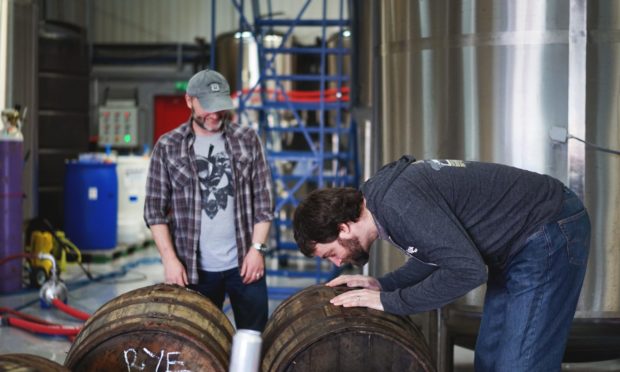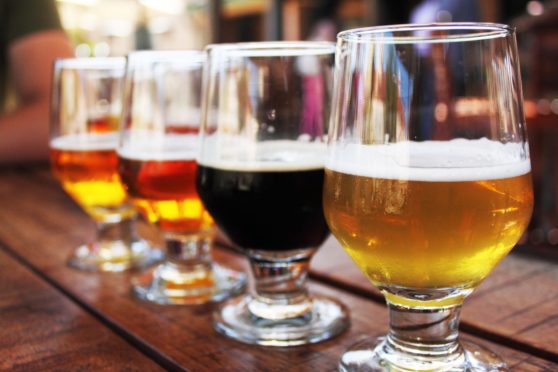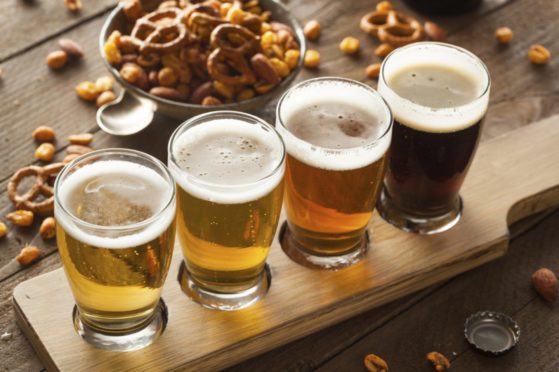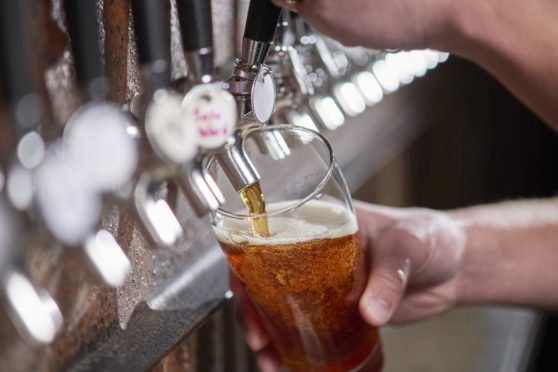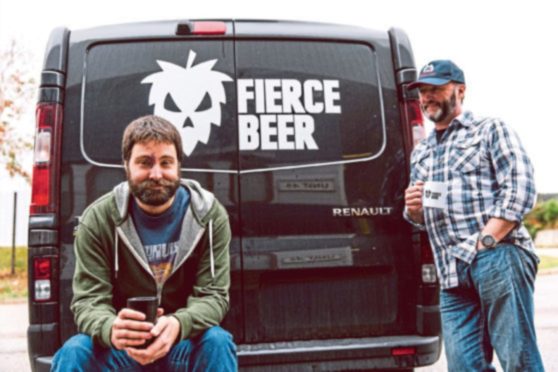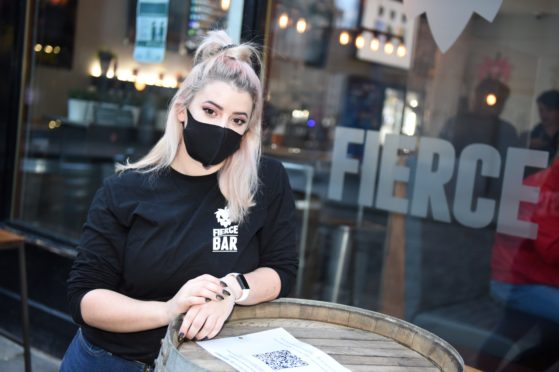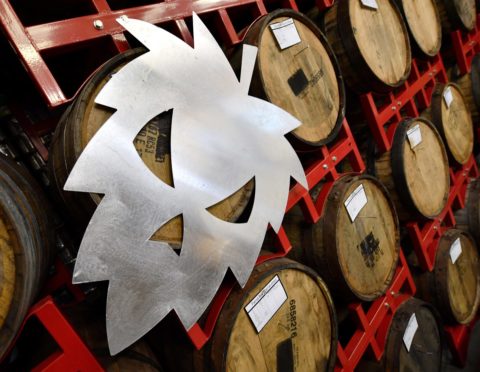Brian Stormont drank craft beer for the first time during lockdown. He discovered how breweries changed their business models which will now benefit them in the long run.
While we have all been stuck at home for long periods during the last 13 months due to the coronavirus outbreak, many people will have tried a number of things they maybe hadn’t in the past.
One of those things for me is craft beer.
I think in my previous 30 years of legally being permitted to drink alcohol, I had tried one can of craft beer and maybe some ales out of curiosity at a beer festival.
I was always more of a lager man, that was my “go-to” drink and I never really wavered from it.
However, in the last year I have been introduced to the world of craft beer and I can definitely see what all the fuss is about.
There are so many varieties and brewers out there making beer of varying strengths for all palates.
Appetite for beer
And figures seem to suggest that I am not the only person who has made this discovery during the pandemic.
The country’s burgeoning appetite for craft beer is borne out by the news that the number of breweries in the UK grew by 216 in 2020, up 7.5% from 2019, according to new research.
According to data from national accountancy group UHY Hacker Young, there are now 3,018 breweries in the UK.
Despite the Covid-19 pandemic and its impact on hospitality sector, the number of new breweries has continued to increase. The closure of pubs and the coronavirus lockdown may even have acted as a catalyst for some entrepreneurs to start new brewing businesses.
New companies
A total of 55 new brewery companies were incorporated between March 16 and June 1 last year, according to UHY Hacker Young.
The group said that the slump in sales through pubs and bars forced many breweries to find new routes to market with e-commerce sales direct to consumers vital to keeping many independent UK brewers trading.
According to the Society of Independent Brewers (SIBA) in April 2020, 30% of independent breweries still did not offer direct-to-consumer delivery or takeaway services.
James Simmonds, partner at UHY Hacker Young, explained: “Growth in breweries during a very difficult period for the drinks industry is a positive sign. Entrepreneurs clearly feel confident in the prospects for a bounce back once pubs and bars can open again.
“People’s appetite for trying new beers from different breweries has contributed to the long-term rise in new breweries being set up. The sector hasn’t fallen into the trap of discounting.
“With the closure of pubs and bars, smaller breweries have had to adapt to direct-to-consumer models. As hospitality begins to reopen, these new breweries will need to build on the momentum they have created through their direct-to-consumer sales.”
Fierce Beer
The managing director of Fierce Beer, Dave Grant, said that continually keeping a close eye on things and changing their strategy was key during the early days of the pandemic.
He said: “We constantly revisited strategy on a weekly basis, sometimes daily. Changing from kegged beer to canned, concentrating on online shop sales, remodelling our bars to work as bottle shops etc. It was tough, a constant struggle to survive, but it also made us more shrewd at business.”
And other parts of the business were given new identities as the demand for beer for people to drink at home increased.
“After we crowdfunded for rewards, we had £150,000 of future orders heading our way,” added Dave.
“We rushed to brew a lot of beer that was canned for the online shop, set up the brewery as a shop and warehouse, and turned Aberdeen and Edinburgh bars into bottle shops.”
Fierce Beer is always innovating with its products, so Dave said it was business as usual in respect of being creative.
“To a minor extent we did bring out new lines – but then we bring out new lines all the time,” he added.
“We actually got so busy satisfying online orders that keeping up with the core and regular brews with a much-reduced brew team was tough enough.
“We, of course, had 21 of our 25 staff on furlough, so our two directors (myself and Dave McHardy) were brewers, canners and delivery drivers. That lasted for a year!”
We do see the return to draft beer of course, but our business really has changed for good.”
Dave Grant, MD, Fierce Beer
Now that restrictions are beginning to lift, how does the managing director see things developing?
“We do see the return to draft beer of course, but our business really has changed for good,” Dave revealed.
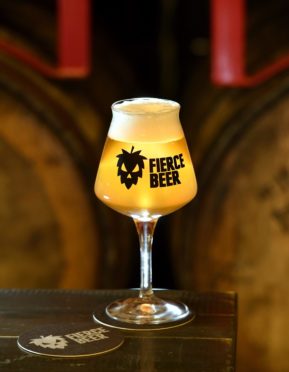
“We have far more people who know who Fierce are around the country. We have a larger customer base as we worked hard to continue to supply customers throughout the UK and overseas – so we are now looking at a tsunami of orders, and are working out how to cope.
“We will be bringing out zero alcohol beers soon. We also have worked on a new core range that will be available in supermarkets in four 330ml fridge packs.
“These are great beers and are also vegan and gluten-free. We have our new Manchester bar open already, and are actively looking for a fourth bar site. So maybe more of the same in a way, but better.”
Craft beers becoming more widely available looks like it is going to be a big thing for the industry this year, in particular retailers and brewers.
Dave added: “Right now the move to have really great craft beer available in supermarkets is going to transform the way we buy beer, but also with change the way breweries do business.
“We will unfortunately see breweries that are unable to continue with the financial squeeze, as we have seen recently with well-known names closing down.
“Aside from that, on products… low and no alcohol beers will become better in quality and more available.
“But the big thing will be that although there will be a move back to visiting bars – the home drinking and subscription box models will remain strong.”
Having won 14 medals at the Scottish Beer Awards last November, Dave says Fierce’s Hazy IPA is his “drink of the moment.”
“Fierce Hazy IPA is pretty much all I drink at the moment. We make a lot of crazy things, and I do love sour beers, but Hazy is 5%, super juicy, vegan, gluten-free, and is perfect to sit and enjoy in the Scottish sun.
“Aside from that, I love mega stouts like our Very Big Moose, Great Divide Yeti or Alesmith ‘Seedway Stout.”
Beer festival
And if you haven’t tried their beers, the multi-award-winning brewery will have nine of its craft beers featured in Aldi Beer Festival which begins on Thursday.
Fierce Beer won “Breakthrough Brewery” back in 2017 and most recently received 14 awards at the 2020 Scottish Beer Awards, including gold awards for Split Shift and Café Racer, which both feature in Aldi’s festival line-up.
The beers from Fierce at the festival are: Fierce Pilsner, Day Shift, Split Shift, Blackcurrant Tart, Raspberry Tart, Cranachan Killer, Heffen Heff, Café Racer and Dirty Sanchez, which are all 440ml cans and priced at £1.79.
Flavourly craft beer subscription
Flavourly, which specialises in the delivery of cases of craft beer, has seen an exponential rise in their sales over the last year.
Assean Sheikh, co-founder and CMO Flavourly, which distributes craft beers all over the country and recently appointed its first hopprentice to trial what it sells, said: “Last year, while an incredibly difficult year on so many levels, was actually a bumper year for Flavourly as the trend for purchasing premium craft beer online for home consumption was accelerated by a number of years.
“As demand for our service skyrocketed, we were able to help partner brewers left with surplus capacity, by diverting this from closed hospitality venues to home deliveries, helping sales treble in 2020 rising to over £10 million.
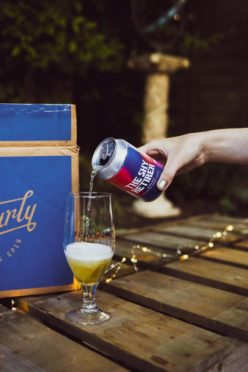
“As lockdown restrictions begin to lift we certainly aren’t seeing any slowdown in demand but what we are seeing is an increase in demand for new and less discovered options.
“I believe this is what is continuing to drive the emergence of small craft breweries and the rise in gypsy brewing.”
